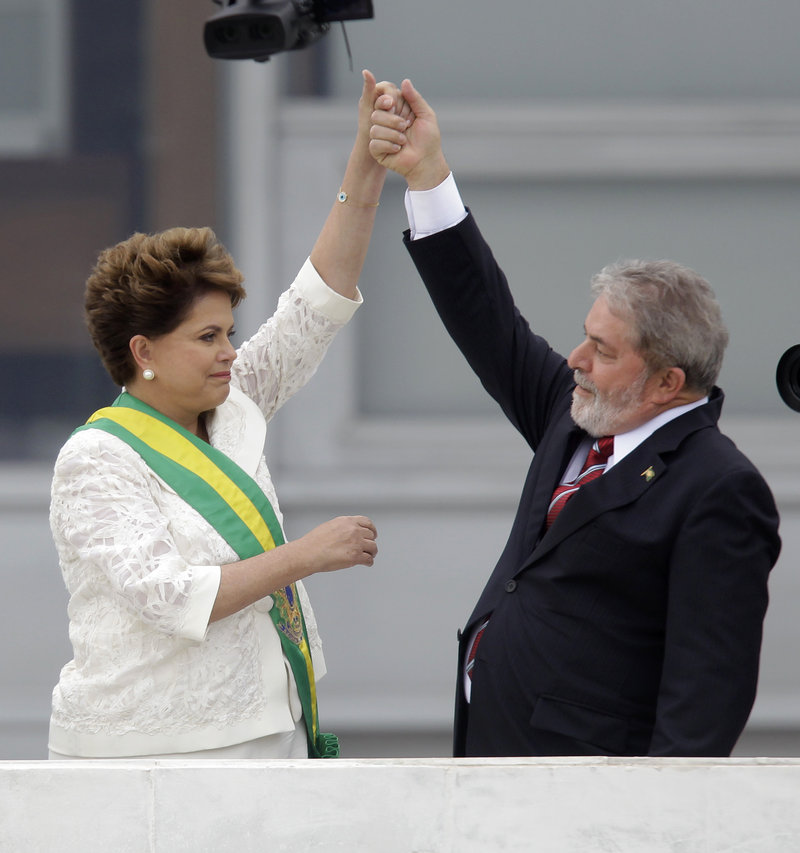BRASILIA, Brazil – Dilma Rousseff was sworn in as Brazil’s first female president Saturday, capping a rapid political trajectory for the career technocrat and former Marxist rebel who was imprisoned and tortured during the nation’s long military dictatorship.
Rousseff, 63, takes the helm of Latin America’s largest nation, which has risen both financially and politically on the world stage under outgoing leader Luiz Inacio Lula da Silva.
“I am going to consolidate the transformative work done by President Lula,” Rousseff said during a 40-minute inaugural address. “He changed the way the government is run, and led the people to trust in themselves.”
Silva leaves office as the nation’s most popular president, with an approval rating that hit 87 percent in his last week in office. Rousseff was his hand-chosen successor — and served as his chief of staff, helping shape his policies.
Brazil has made significant progress since Silva was elected. His social programs and wealth redistribution helped pull 20 million people out of poverty. On the brink of a sovereign default in 2002, it now lends money to the International Monetary Fund. Unemployment is at a record low, its currency has more than doubled against the dollar and the nation will host the 2016 Olympics.
While proud of those gains, Rousseff said now was no time for her nation to relax.
“There is still poverty shaming our country,” she said. “I will not rest while there are Brazilians without food on their table, homeless in the streets, and poor children abandoned to their luck.”
Rousseff referenced those of her generation who fought and died at the hands of Brazil’s 1964-85 military dictatorship. Rousseff was part of an armed rebel group for three years before being arrested and imprisoned in early 1970. She spent three years in jail, during which time she was brutally tortured.
“That at-times tough path made me value and love life much more,” Rousseff said. “It gave me, more than anything else, courage to confront even bigger challenges. It is with this courage that I’m going to govern Brazil.”
Rousseff takes on the formidable task of maintaining Brazil’s momentum. In the eight years under Silva, Brazil sharply cut poverty while its economy boomed, and it has increased its political clout on the global stage. Brazil will host the 2014 World Cup and is expected to be the world’s fifth-largest economy by the time the 2016 Olympics come to the nation.
Send questions/comments to the editors.



Comments are no longer available on this story